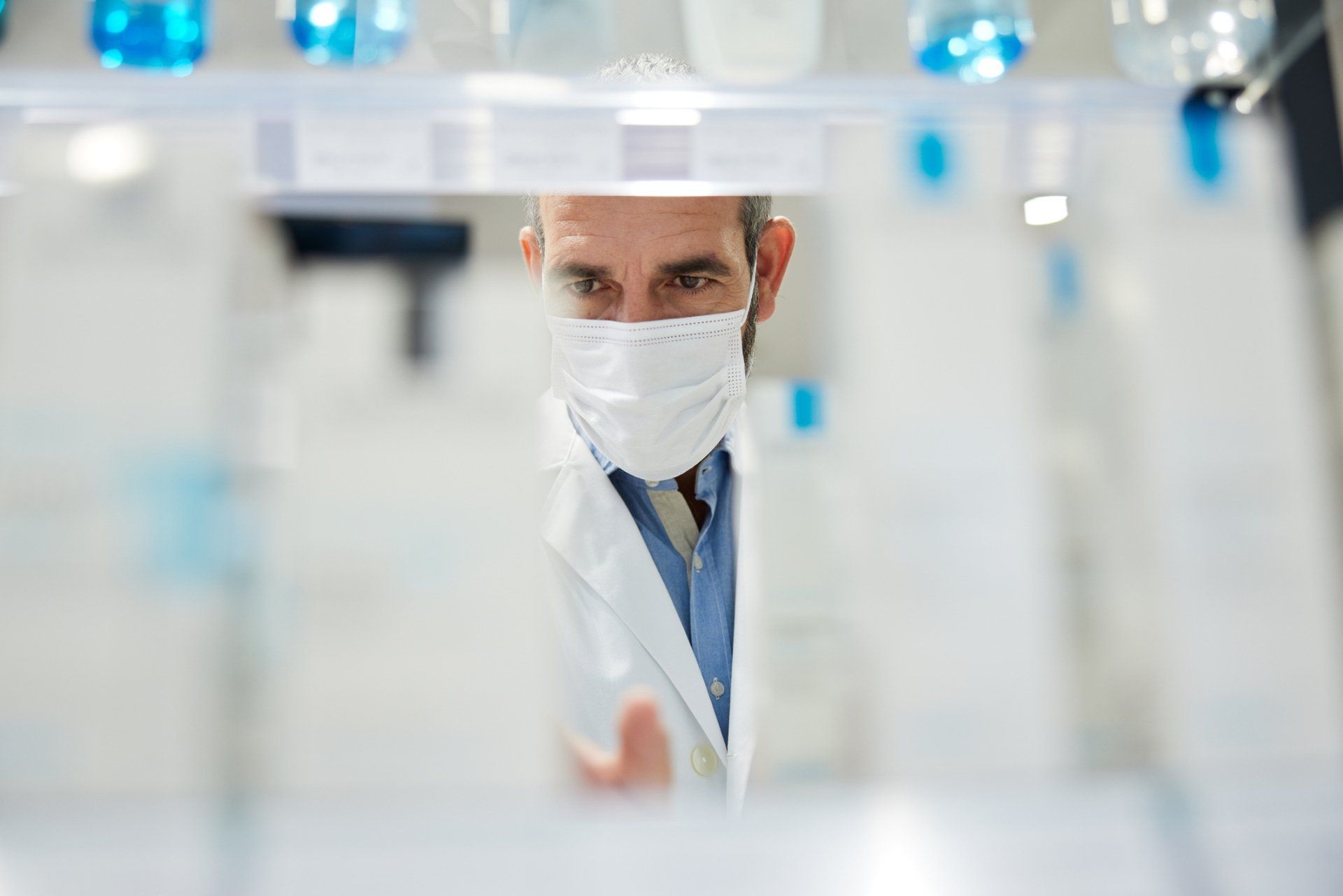Fancy 'Process Development Scientist' as your next job title? Here's what it takes

Kelly • Sep 20, 2022
If you’re looking at roles in biomanufacturing, you may have seen titles such as Upstream or Downstream Process Development Scientist. But what do those roles entail, and what skills would you need to be hired for such a role? Well, we’ve got all the answers you need!
Biomanufacturing is a thriving industry at the moment. If you aren’t already familiar with the sector, it involves using biological systems to manufacture products. These can be products used in the food industry, in agriculture, for pharmaceuticals or in other industries; it’s a huge industry that goes beyond pure life sciences.
Biotechnology as a whole, including biomanufacturing, has seen a sudden influx of interest - and funding - since the pandemic showcased the value of medical products. That means the sector is seeing increased demand, and needs more employees than ever! But if you haven’t been introduced to Process Development roles during your education or through your network, you might not even know they exist. We’ve laid out some facts to help you understand what these scientists do, and how you might become one! But first, a quick intro to biomanufacturing to give a little context.
The importance of biomanufacturing
Biomanufacturing is used to produce all sorts of products. We’re focussing on Life Sciences roles, which account for around 50% of all biomanufacturing companies. The products created using this approach include medicines, treatments and antibiotics.
One great example of the importance of biomanufactured products is use of bacterial cells or yeast to produce insulin. Scientists insert the genetic code for insulin production into the living cells, which then start to produce insulin. That insulin - the product - is then purified and used as medicine for people who cannot produce their own (or enough) insulin to manage their blood sugar levels.
There are many different platforms that can be used to create products like this, but the scientists we spoke with focussed on using mammalian cells, so if you’d like to explore a different platform (plant, bacteria, yeast, viral etc) or believe your experience is more closely aligned with those approaches, you’ll want to do a little extra reading after this article!
What do Process Development Scientists do?
There are many different ways that biomanufacturing businesses can be structured, so the roles can vary from company to company. You’ll find Upstream and Downstream Process Development Scientists working very closely with each other. That’s because the Upstream team is responsible for receiving and growing the cells that produce the product. They then extract the product and - depending on the organisation - purify it before sending it to the downstream team. In some cases, the purification is the downstream team’s responsibility, but ultimately the divide is somewhere around purification.
This means that the Upstream team is mainly responsible for cells, while the downstream team is mainly responsible for what happens with the purified product. Both roles require scientific education, most often a relevant PhD, although full training is provided and the specific requirements may vary by organisation.
Here’s a little more information about the range of desirable skills for roles in this field from one of our experts:
“Following the pandemic, society’s wellbeing and health came to the forefront. There is no flourishing economy without healthcare and innovation. Consequently, private investors and governments around the world are massively investing in the biotech industry. There is thus a real need for skilled workers to move these early-stage biotech innovations forwards. These innovations will soon need candidates with specific skills to be able to manufacture them, too. Finally, the type of organisation will also define the key skillset needed: a contract development and manufacturing company (CDMO) might focus on troubleshooting and manufacturing skills, whereas a startup will put the priority on R&D.”
Life Sciences Practice Project Manager, Kelly International (EMEA & LATAM)
Upstream
This team will receive cells from clients who are interested in moving their product into clinical trials. Before the client can do that, they need to make sure that they have a protocol in place that reliably produces an effective product. Upstream scientists will take the cells and move them through the various stages of the process required to increase the number of cells present and produce usable products. They spend a lot of time working with bioreactors.
The key skills required for this role are cell culture skills, as well as experience with the key equipment and techniques used: cell counters, metabolite and nutrient analysis, bioreactors and controllers. Additionally, you’ll want to have great communication and team working skills, particularly as the timing of passing products from upstream to downstream needs to be carefully managed. Troubleshooting is another valuable skill to demonstrate, as well as the ability to work with clients - this can include relationship building, data management and report writing, as well as presentation skills.
Downstream
This team receives the product from the upstream team and purifies it. The client will often provide the protocol for this, but the scientists will need to design experiments to ensure that the protocols can be scaled up and used in manufacturing. This means testing the process to see how changing conditions, or adding/removing steps, might affect the product. They will also check that the protocol is reliable - that is, that it can be repeated by different teams and still produce the same high-quality results each time (which is very important in clinical products, and for regulatory purposes).
The key skills for this role include chromatography (there are many different types: size exclusion, affinity, reverse phase, ion exchange, hydrophobic - you won’t need to know them all, but being aware of them is important), as well as other practical skills such as performing functional assays, column-packing for AKTA machines and filtration. For protein products, an understanding of protein biochemistry is important, too. You probably won’t have to deal directly with the client, but teamwork and communication skills are still vitally important due to that important relationship with the upstream team. You’ll also need to be good at experimental design, analysis and reporting of data and following/giving instructions.
Other roles
There are other roles to consider in both upstream and downstream teams, such as Supervisor (if you have more experience and have managed a team before), or Associate/Technician roles that have slightly lower requirements for entry. There are also Project Managers who help to pull together and do the admin for projects, including working with both teams and the client. Some roles, such as Field Services Technicians who have experience in chromatography can garner higher salaries than more generalist technician roles, too, which could be a great way in for candidates with a Master’s degree or relevant experience.
More information
If you’re interested in a career in biotechnology, there’s plenty more you can read about to help you get started. For example, learn about GMP regulations, which control the products, processes, premises, people and procedures involved in GMP-compliant manufacturing operations. You can also look at different types of organisation, such as contract development and manufacturing companies (CDMOs), which provide drug development/manufacturing services to pharmaceutical companies.
You can find out more about these roles by exploring relevant job adverts, on the Kelly websites:
And of course, if you’d like to chat to one of our recruiters about your experience and skills to see what a career in biotechnology might look like for you, we’d love to hear from you in the comments, or look for your country’s Kelly Life Sciences webpage!







